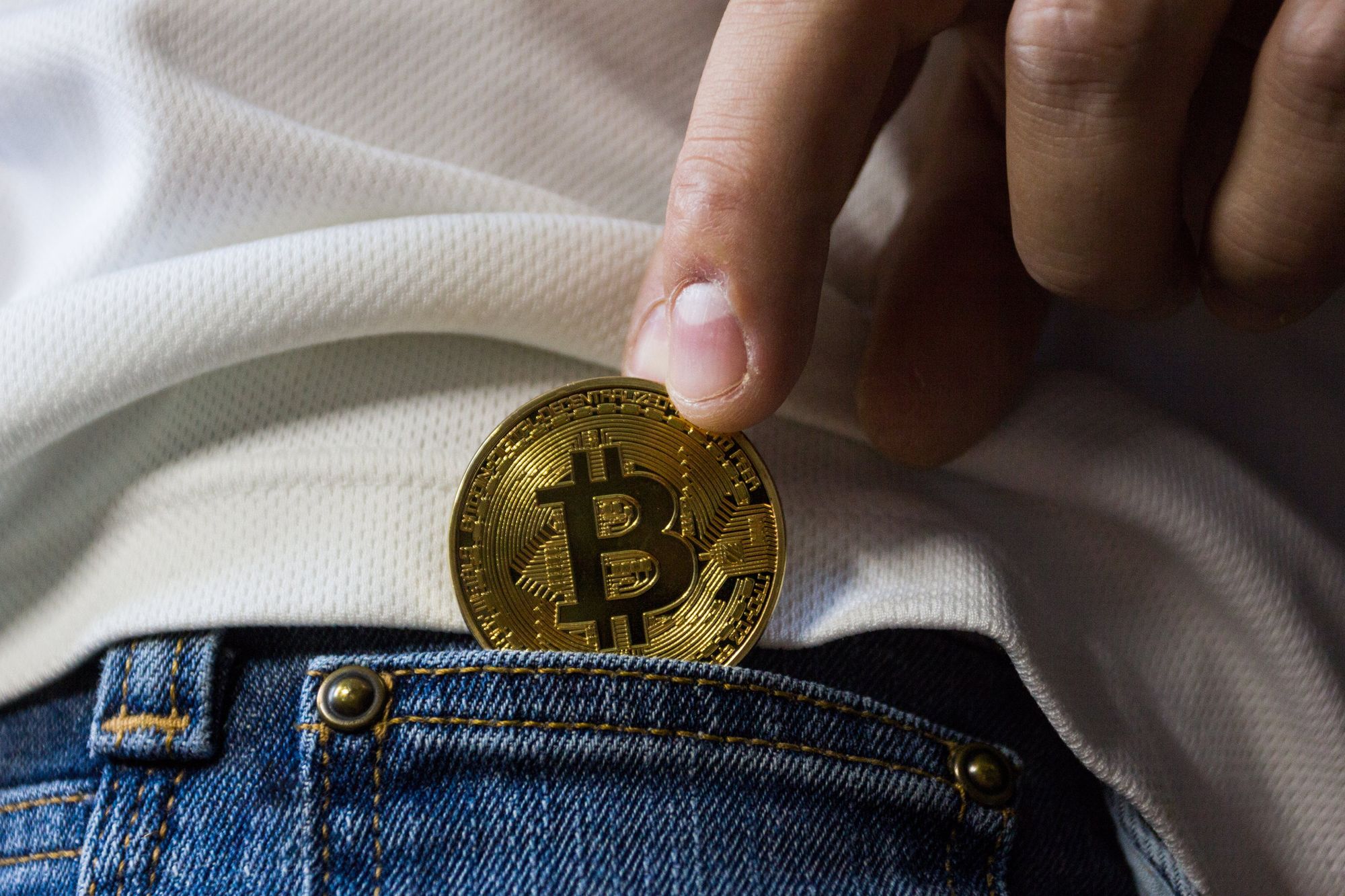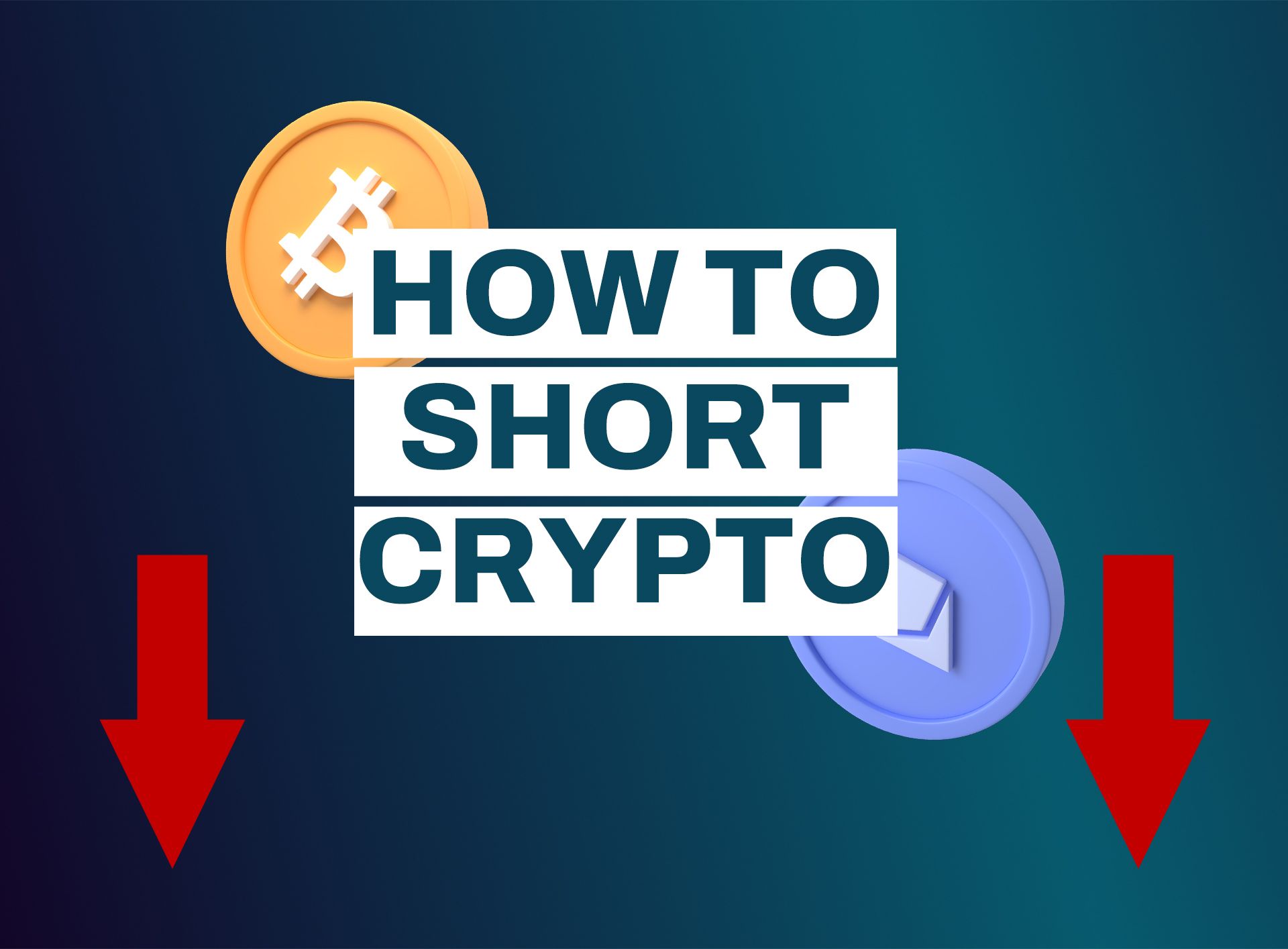TABLE OF CONTENTS:
1. What Does It Mean To Short Crypto?
2. How To Short Crypto?
3. Factors To Consider When Shorting Crypto?
4. Common Mistakes To Avoid When Shorting Crypto
5. Closing Thoughts
6. FAQs
Investing in cryptocurrencies has become increasingly popular, but the unstable nature of the market can make it unpredictable.
Many traders are taking advantage of this unpredictability to make profits by shorting crypto.
Shorting crypto is a strategy that allows investors to profit from a decline in the value of a cryptocurrency. In this article, we'll explore what it means to short crypto, how to carry out the process, and what mistakes to avoid.
What Does It Mean To Short Crypto?
Shorting crypto involves borrowing a cryptocurrency, selling it at the current market price, and buying it back when the price drops, allowing you to return the borrowed amount and keep the profit. It's a strategic move that lets investors capitalise on market downturns.
Let's break it down with an example: imagine you borrow 1 Bitcoin when its value is $50,000. You immediately sell it at the current market price, let's say $50,000, and now you have $50,000 in cash. Now, if the price of Bitcoin drops to $40,000, you can buy back the same amount of Bitcoin for $40,000 and return it to the lender, keeping the $10,000 difference as profit.
However, it's important to note that crypto markets are notoriously unpredictable, and while shorting can offer opportunities, it also comes with risks.
How To Short Crypto
Here's a step-by-step breakdown:
1. Borrowing the Cryptocurrency:
This step involves borrowing a certain amount of cryptocurrency from a broker or exchange with the expectation that its value will decrease in the near future.
2. Selling the Cryptocurrency:
Once you have borrowed the cryptocurrency, you sell it on the open market at the current market price. You now have cash from the sale, but you owe the broker or exchange the equivalent amount of the borrowed cryptocurrency.
3. Waiting for the Value to Drop:
You wait for the value of the cryptocurrency to decrease. If the value drops, you can buy the same amount of cryptocurrency back at a lower price.

4. Returning the Borrowed Cryptocurrency:
You buy back the cryptocurrency and return it to the broker. The difference between the higher price at which you sold initially and the lower price at which you bought it back is your profit.
Factors to Consider When Shorting Crypto
1. Market Sentiment:
Understanding market sentiment is crucial. If negative news or trends are affecting a cryptocurrency, it might be a good time to consider shorting.
2. Technical Analysis:
Use technical analysis tools to identify potential entry and exit points for your short trade.
3. Risk Management:
When you're betting that the price of a cryptocurrency will go down, it's smart to use stop-loss orders. These orders help make sure you don't lose too much money if the market goes the wrong way.
4. Leverage:
Be careful when using leverage. It can boost your earnings, but it also raises the chance of big losses.
5. Stay Informed:
Regularly check news and updates about the cryptocurrency market to stay informed about potential market-moving events.
6. Market Liquidity:
Pick cryptocurrencies that many people are buying and selling. This way, it's easier for you to buy or sell them whenever you want.
Common Mistakes to Avoid When Shorting Crypto
1. Ignoring Risk Management:
A major mistake is betting against the market without a good plan to handle risks. It's important to set stop-loss orders, which are like safety limits, and decide the most you're okay with losing on a trade. If you skip these precautions, the unpredictable crypto market can quickly change your profits into big losses.
2. Underestimating Market Sentiment:
What people think and share on social media, the news, and in online communities really affects crypto prices. If you don't pay attention to these things, you might make wrong decisions. Sometimes, good news can suddenly make prices go up a lot, surprising those who were betting that prices would fall and causing them to lose a lot of money.
3. Failing to Conduct Thorough Research:
When you're betting against a cryptocurrency without looking into its basics and technical details, it's like setting yourself up for failure. To avoid problems, take the time to check the project, the team behind it, the technology involved, and any recent changes before making decisions.
4. Ignoring the Dangers of Borrowing Money:
Borrowing money can boost your profits, but it can also make your losses much bigger. If you borrow too much money without really knowing the risks, you could lose all your investment very quickly. It's important to be careful with borrowing and understand what might happen if things go wrong.
5. Ignoring Liquidity Concerns:
When there are not enough people trading a particular cryptocurrency, it can cause the price you get to be different from what you expected. This might make you lose money or make the losses even worse. It's safer to trade cryptocurrencies that a lot of people are buying and selling, so you can trade without big price changes.
6. Getting Emotional:
Making decisions based on emotions is a big weakness for traders. Allowing fear or greed to control what you do can make it hard to think clearly and result in sudden decisions. To avoid this, it's important to have a clear trading plan and stick to it, which can reduce the influence of emotions on your trades.
7. Neglecting Macro Trends:
The value of cryptocurrencies doesn't just depend on small details but also on big economic trends. If you don't pay attention to larger economic signs and worldwide happenings, you might be caught off guard. Stay informed about major global events, changes in regulations, and overall economic trends to predict possible changes in the market.
Closing Thoughts
Making money by shorting cryptocurrency can work well if you think about market conditions and manage risks carefully.
It's really important for investors, especially those who are just starting out, to do their homework, stay updated, and be careful when they're trying to make money by betting against crypto.
As the crypto market changes, being able to adjust to new information and how the market is doing is super important for successfully betting against it.
FAQs
Q1. What does it mean to short a cryptocurrency?
A1. Shorting a cryptocurrency involves betting that its value will decrease, allowing you to profit from the price decline.
Q2. How do I borrow cryptocurrency for shorting?
A2. You can borrow cryptocurrency from a broker or exchange that offers margin trading.
Q3. Is shorting crypto risky?
A3. Yes, shorting crypto comes with risks, and it's essential to manage those risks through proper strategies.
Q4. Can I short any cryptocurrency?
A4. Not all cryptocurrencies are available for shorting. Choose exchanges that offer a variety of shortable assets.
Q5. What is leverage in shorting crypto?
A5. Leverage allows you to control a larger position with a smaller amount of capital. However, it also increases the risk.
Q6. How do I analyse market sentiment for shorting?
A6. Monitor news, social media, and forums to measure the overall sentiment around a particular cryptocurrency.
Q7. Are there fees associated with shorting crypto?
A7. Yes, brokers may charge fees for borrowing cryptocurrency, and there might be interest costs.
Q8. Can I short crypto for the long term?
A8. While shorting is typically a short-term strategy, some investors use it as a hedge against long-term holdings.
Q9. What is a short squeeze?
A9. A short squeeze occurs when short sellers rush to cover their positions, causing a rapid increase in the cryptocurrency's price.
Q10. Should beginners try shorting crypto?
A10. Shorting involves a higher level of risk and complexity. Beginners should thoroughly understand the process before attempting to short cryptocurrencies.
Disclaimer: This article was written by the writer to provide guidance and understanding of cryptocurrency trading. It is not an exhaustive article and should not be taken as financial advice. Obiex will not be held liable for your investment decisions.

